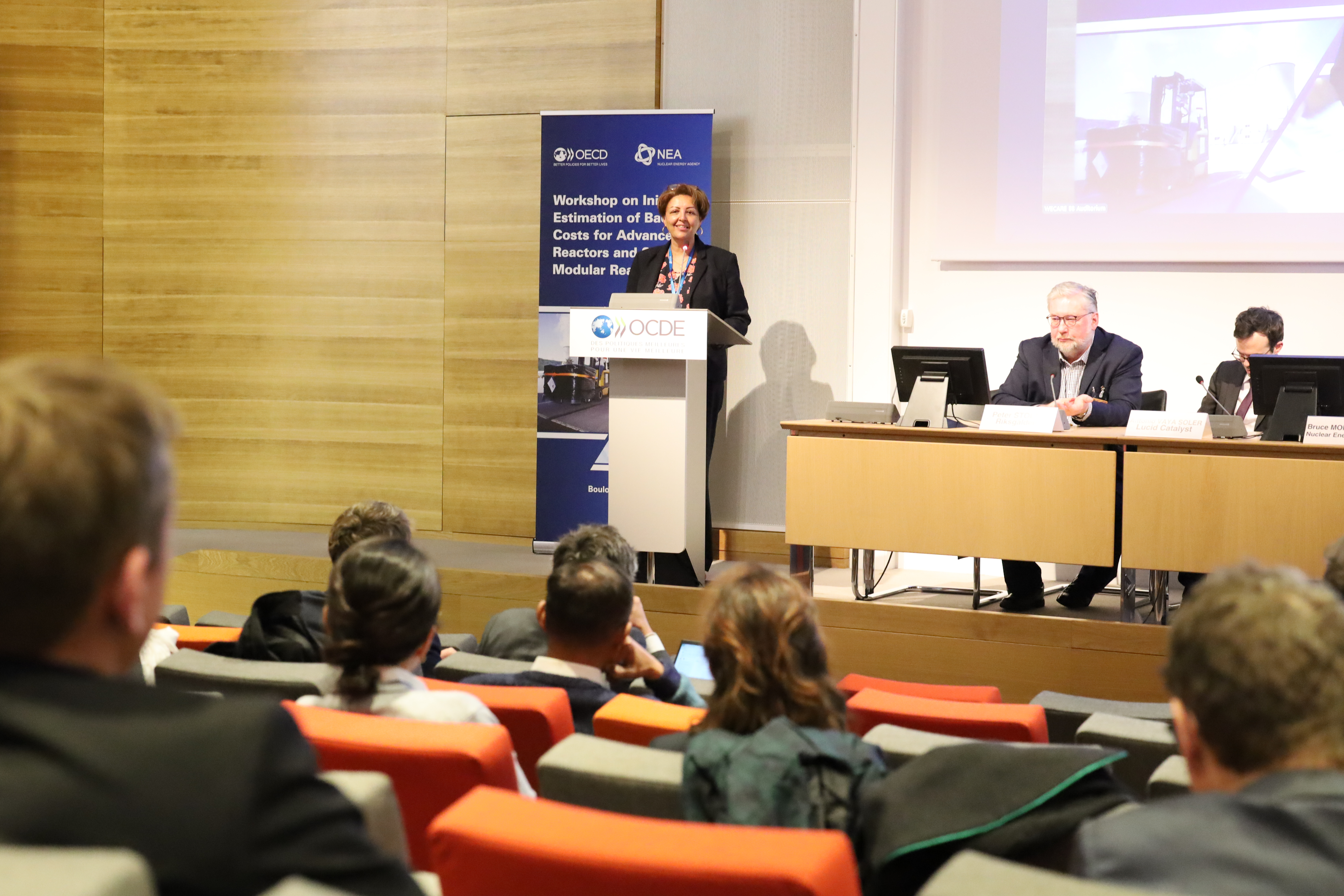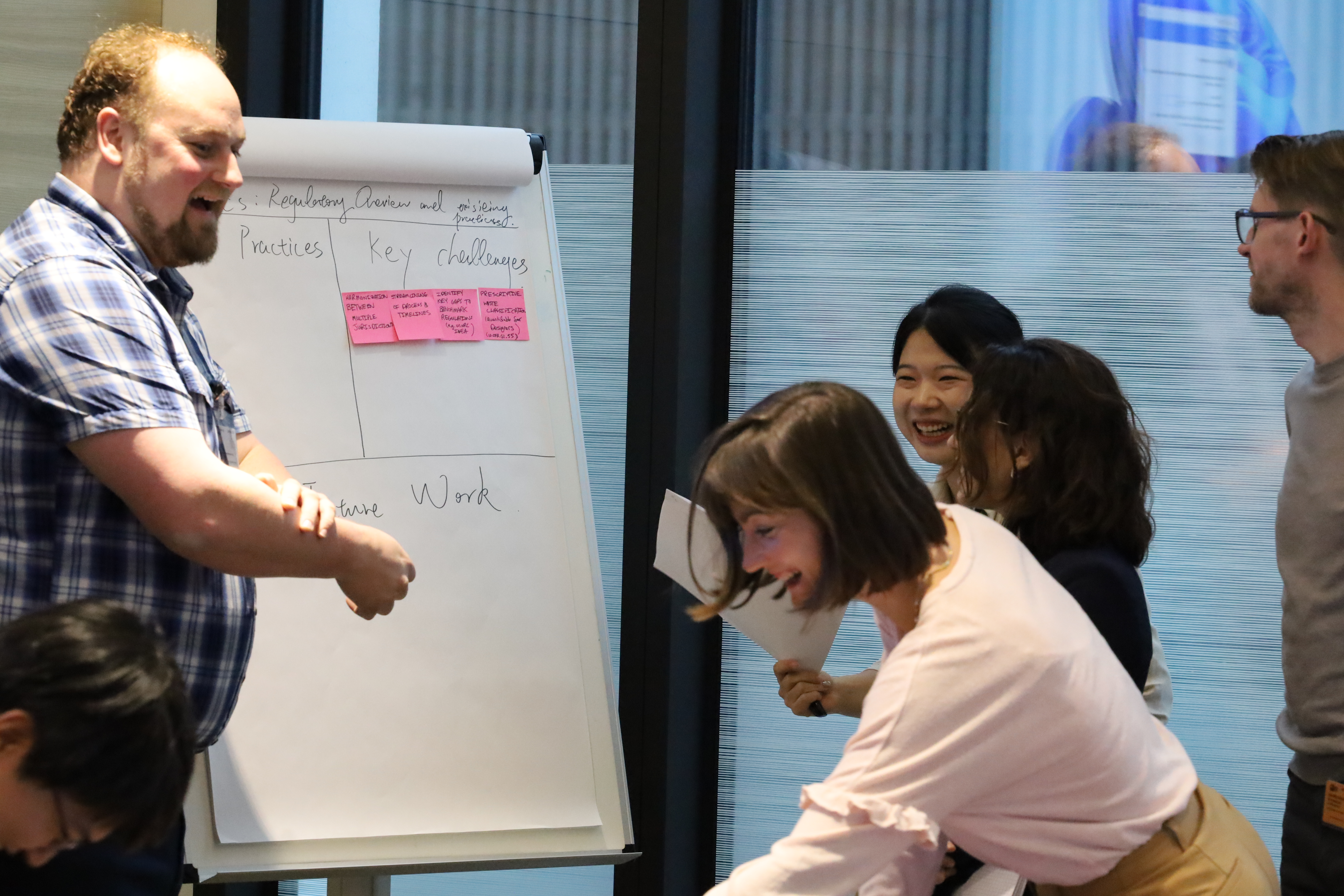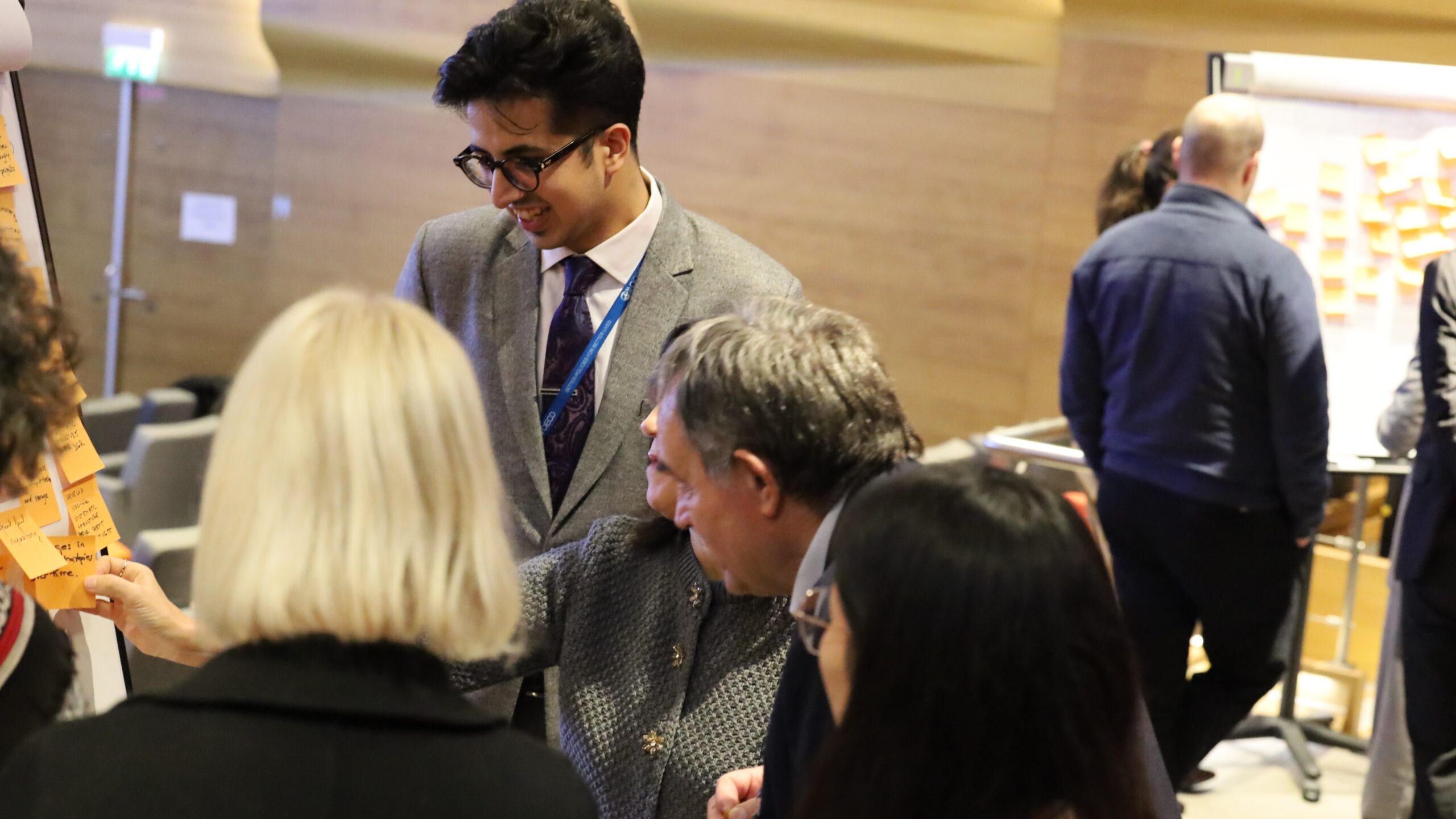Workshop participants participating in a collaborative breakout session.
The NEA Workshop on Initial Estimation of Backend Costs for Advanced Reactors and Small Modular Reactors brought together more than 120 participants to Paris, France from 18-20 November. Participants from a broad range of stakeholders from both the public sector and the private sector included individuals with experience in reactor design, waste management, decommissioning, finance, investing, cost estimation, regulation, and more.
Workshop participants at the end of the first day of the workshop.
The goal of the workshop was to help provide preliminary guidance that aids in understanding future backend and decommissioning requirements for new and advanced nuclear technologies. Such guidance would help inform those currently working on designing new reactor technologies. By providing a holistic picture of long-term costs, including those of decommissioning and backend management, the workshop aimed to inform financial and funding stakeholders for new projects. This was done through breakout sessions, high-level panels and dedicated interactive discussions.
The workshop discussed new technologies, with a variety of presentations from small modular reactor (SMR) and advanced reactor developers Aalo Atomics, Blykalla, Korea Hydro and Nuclear Power (KHNP), Orlen Synthos Green Energy (OSGE) and TerraPower. International co-operation for new technologies was highlighted through ongoing efforts such as the work being done by the European Nuclear Cogeneration Industrial Initiative, the International Atomic Energy Agency (IAEA), Nucleareurope and the NEA. One such example showcased was the NEA Small Modular Reactor Dashboard: Third Edition. Discussions further centered on current knowledge and good practices from existing strategies across waste management and decommissioning providing a strong basis for in-depth conversations on new and novel fuels, their selection and the potential impact on existing backend management strategies.
 A panel session of the workshop.
A panel session of the workshop.
By thinking with the end in mind, the workshop also explored the idea of ‘Decommissioning by Design’. This helped the inter-disciplinary group of attendees unpack not only potential decommissioning activities for new reactors but also consider how concepts of modularity and standardisation may have an impact on cost drivers. Highlighting existing backend cost estimation methodologies, such as the International Structure for Decommissioning Costing (ISDC), the workshop included discussions on the importance of cost-estimation as a means to ensure projects are economically sound – considering full lifecycle costs and holistic analysis – and help provide key stakeholders, such as policymakers and the public, with a pathway for robust long-term strategies that capture the various promises offered by these new technologies.
Building from discussion on cost estimation methods, the workshop also addressed considerations for adequate financial and funding strategies including the need to consider the backend and decommissioning costs as a key component. A large part of this conversation also highlighted the role of collaborative efforts by key stakeholders, including government, industry, regulators and the public.
 A panel session on the last day of the workshop.
A panel session on the last day of the workshop.
Participants stressed the beneficial role of international collaboration, particularly for reducing uncertainties associated with new technologies and helping enable the development of new regulatory, legal and technical approaches. Exploring these topics is important not only to foster earlier and more robust collaboration between technology vendors and the backend nuclear energy community, but also to further develop frameworks that can help streamline the licensing processes and facilitate financing.
The lessons learnt and key discussions from the workshop will be developed into preliminary guidelines. These guidelines will compile best practices to aid stakeholders build trust and confidence; guide understanding of critical decommissioning and waste management considerations and support regulatory and licensing processes.
 One of the groups working during the breakout session.
One of the groups working during the breakout session.
